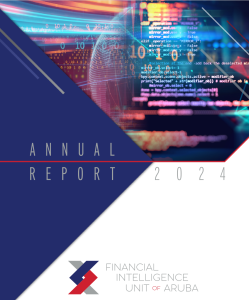FATF: HIGH-RISK JURISDICTIONS SUBJECT TO A CALL FOR ACTION – JUNE 2024
FATF statement
The Financial Action Task Force (FATF) regularly publishes a list of countries that have significant strategic deficiencies in their national AML/CFT/CPF regimes. For the countries that are considered to be of high risk, all jurisdictions should apply enhanced due diligence or, in the most serious cases, apply countermeasures in order to protect the international financial system from the effects of the money laundering, terrorist financing or financing of proliferation risks emerging from those countries.
In its most recent statement of 28 June 2024 (High-Risk Jurisdictions subject to a Call for Action – June 2024 (fatf-gafi.org)), FATF calls on its members and other jurisdictions to apply countermeasures against the Democratic People’s Republic of Korea (DPRK) and Iran.
FATF noted that PF risks for the DPRK have increased due to its increased connectivity with the international financial system. Reference is made to UNSCR 2270 which provides that the DPRK often obscures the transparency of the beneficial ownership of legal persons and arrangements using front companies, shell companies, joint ventures and complex, opaque ownership structures for the purpose of violating sanctions.
Furthermore, Iran is required to implement measures addressing the deficiencies regarding countering terrorist financings as provided in its action plan. Until then, the FATF considers that significant concerns remain with respect to the TF-threat emanating from Iran and its threat to the international financial system
Furthermore, FATF has called upon members and other jurisdictions to apply enhanced due diligence measures against Myanmar. FATF decided that further action was necessary due to the lack of progress in the completion of action items in Myanmar’s action plan. Nonetheless, these measures should be proportionate to the risks arising from the jurisdiction and they should not hinder flows of funds for the purpose of humanitarian assistance, legitimate NPO activity and remittances.
Responsibility of reporting entities
Pursuant to article 11 of the AML/CFT State Ordinance, designated financial and non-financial service providers are required to conduct enhanced customer due diligence if a business relationship or a transaction by its nature entails a higher risk of money laundering, terrorist financing or financing of proliferation. The identification of high-risk countries by the FATF increases the level of AML/CFT/CPF risk in a business relationship or a transaction. Service providers should take the necessary measures to mitigate the increased risk.
Considering the above, it is important to remain alert for red flags when conducting transactions involving the countries referred to in this FATF statement. If there is reason to assume that a transaction (i.e. financial transaction/service) is related to AML/CFT/CPF, this should be reported promptly to FIU-Aruba in an unusual transaction report under the subjective indicator 130201 or 130202.
Additionally, FIU-Aruba reiterates the importance of conducting a ‘sanctions-check’ to determine whether transaction(s) must be reported objectively under indicator 130102 (see in particular: “Aanwijzing geconsolideerde lijst VNSC” and “Aanwijzing EU Sancties Bevriezingsmaatregelen”) and to determine whether national freezing measures are applicable.
Click on the following link to find the FATF statement:
High-Risk Jurisdictions subject to a Call for Action – June 2024 (fatf-gafi.org)
FIU-Aruba reiterates the importance that service providers stay abreast of the public statements that are published on the website of the FATF in relation to jurisdictions that are under increased monitoring and high-risk jurisdictions subject to a call for action.
Should there be any questions, please feel free to contact us.

